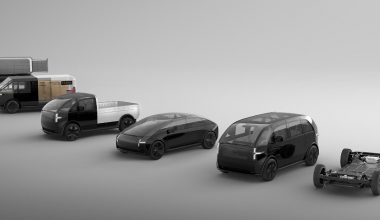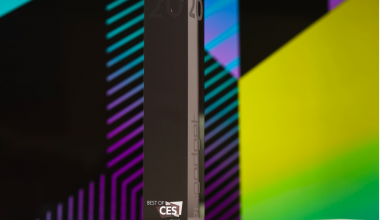Razor Announces New Adult Electric Scooters
Razor just turned 20 years old, and in celebration of this milestone, has released three new electric scooters targeted especially towards a more budget-conscious adult population. The newly unveiled scooter models’ names include EcoSmart SUP, E300 HD, and the C25.
/cdn.vox-cdn.com/uploads/chorus_image/image/67090934/Razor_escooter.5.jpg)
These scooters also hope to prevent accidents by limiting the top speed to 18mph. Razor doesn’t want to sell you speed; it wants to sell you a scooter. They’re also relatively cheaper (only $200-$500) in comparison to brands that reach the $1000 price point – those electric scooters that boast overwhelmingly fast max speeds of up to 50mph. In this way, they’re also suitable for first-time riders and experienced drivers alike.
Sustainable Fashion Evolves
COVID-19 has hit every industry across the world, and it had an especially negative impact on the fashion industry. But at the same time, the pandemic has made some reorient towards a more sustainable lifestyle – which means an overhaul in your wardrobe. As a result, brands like Gucci are beginning to use recycled, organic, bio-based or sustainably sourced materials in their clothing lines.

Anna Gedda, the Head of Sustainability at H&M Group, has said that companies and brands in the fashion industry will revolutionize its business model to not only fit the new economic and digital purchasing outlooks of many consumers but also redirect towards a more sustainable orientation. This isn’t just aimed at using different materials but also directed towards the production level, too. There will be more sustainable factories, using greener energy and more solar panels. This also means the introduction of circular models that include short-term ownership, a “Re-Made” initiative directed towards updating older clothing pieces to fit in with the current design trends, and on-demand services where production quantity is correlated to consumer demand. Every one of these initiatives is working toward a greener future.
A Necessity for an EV Future
The chief executive of Volvo Cars recently emphasized the importance of government support when it comes to electric charging infrastructure in major cities. Due to COVID-19 many cities are already planning for a less congested future on the roads and are even giving things like Eco-Bonuses for driving electric vehicles. However, while countries like Norway have government-backed support on creating a sustainable transportation system, many countries have not introduced such measures.

Volvo Cars have additionally already partnered with Plugsurfing, an app that provides access and map to thousands of charging points across Europe. The company says more measures like this must be applied internationally to suit the rising demand in electric transport methods. Volvo also hopes that by 2025, around 50% of its cars to be purely electric, with no internal combustion engine at all, hence emphasizing the importance of a government-backed infrastructure.
Digitizing Traffic
Hamburg, Germany is digitizing traffic. Being the second-largest city in Germany, Hamburg has more congestion than any other city in Germany. According to the Tomtom traffic index, Hamburg has a congestion level of 33%, ranking even higher than Berlin. In order to predict traffic patterns and make smarter decisions, the city intends to collect traffic data.

To collect data, the city is implementing networks of FLIR thermal imaging cameras, to be installed by 2021. These cameras are able to detect vehicles and bikes in near real-time, using the heat from the vehicles. Thus, the sensor is able to detect travelers in all kinds of weather conditions, day and night. This data will help traffic controllers adjust signals. In the longterm, the data will provide key insights into implementing better traffic practices.
Amtrak’s Sustainability Report
Amtrak recently released its 2019 sustainability report. The report showcases Amtrak’s four core values, including doing the right thing, putting customers first, and excelling together.

With regard to sustainability, Amtrak worked hard to engage in energy-saving practices. They decreased their electricity consumption by 4.4%. Amtrak also reduced diesel fuel consumption by 2.8%, an 11.3% reduction since 2010. The company also reduced its greenhouse gas emissions by 4%.
Amtrak also implemented many tactics to achieve these numbers. For example, to reduce diesel fuel consumption, Amtrak focused on decreasing locomotive idling time. They also implemented energy conservation projects in Los Angeles, Oakland, and other cities.
The company is now preparing for the new Acela fleet, a high-speed train system that will be 40% more energy efficient than the current sets.
Written by: Sam Heimowitz and Jenny Tan



